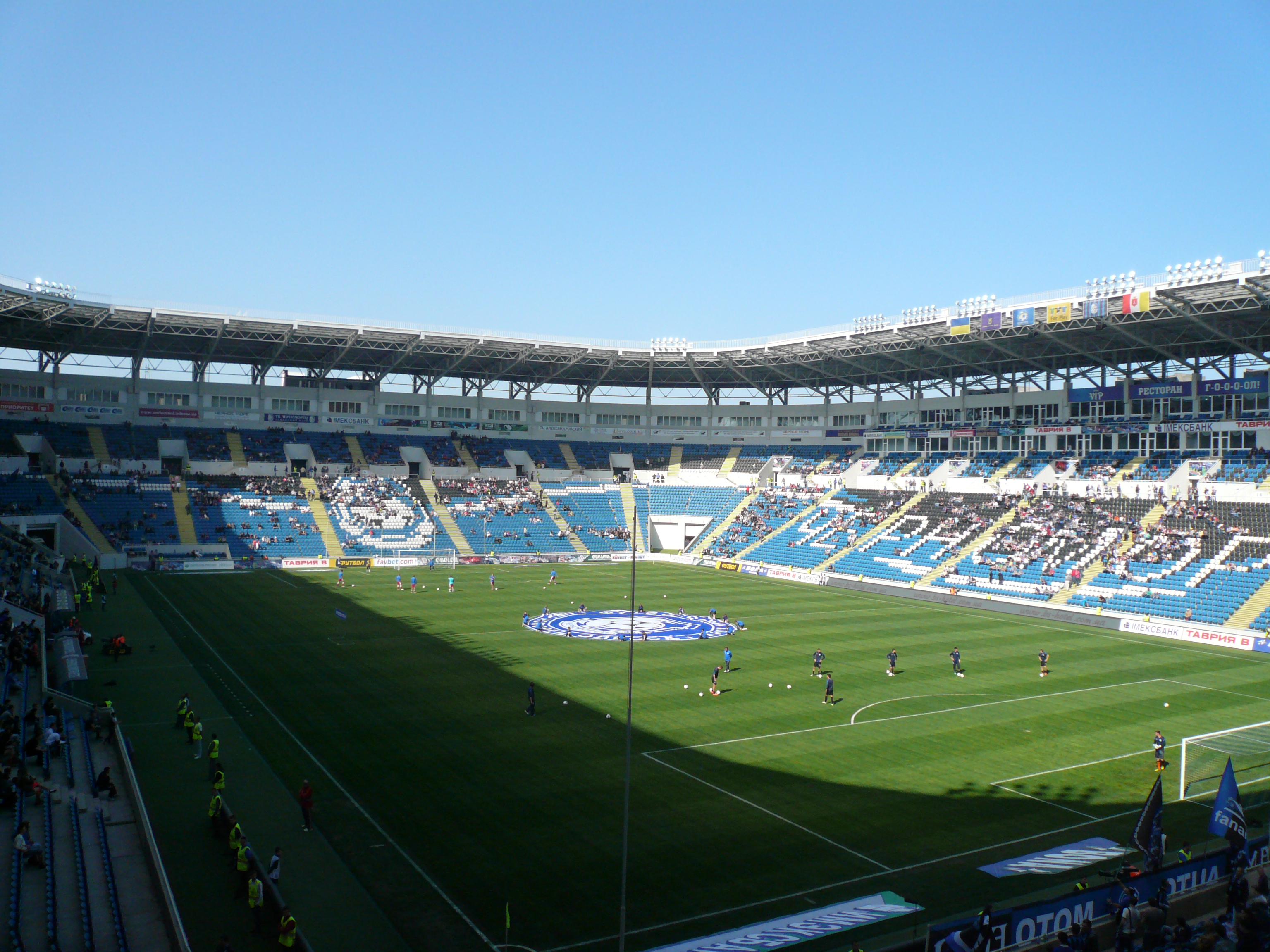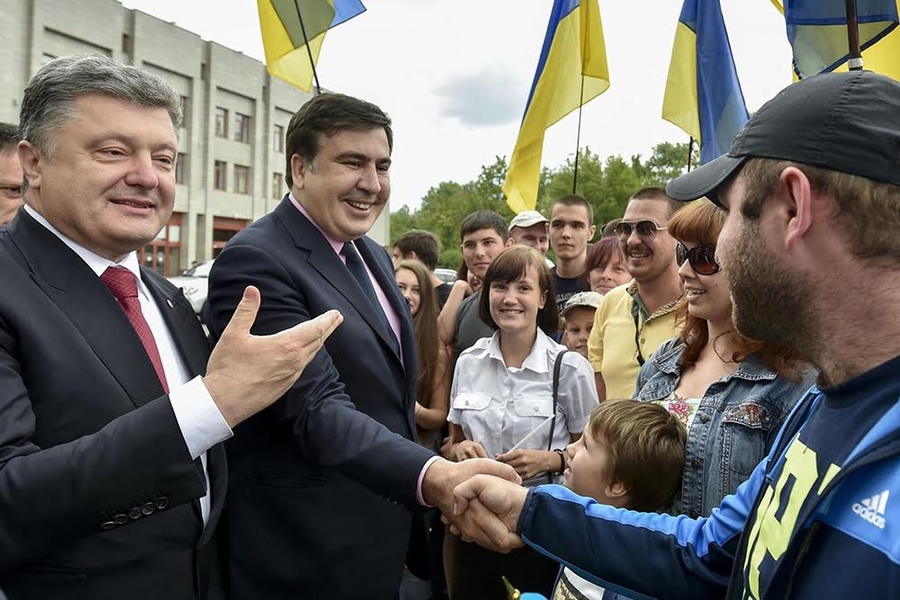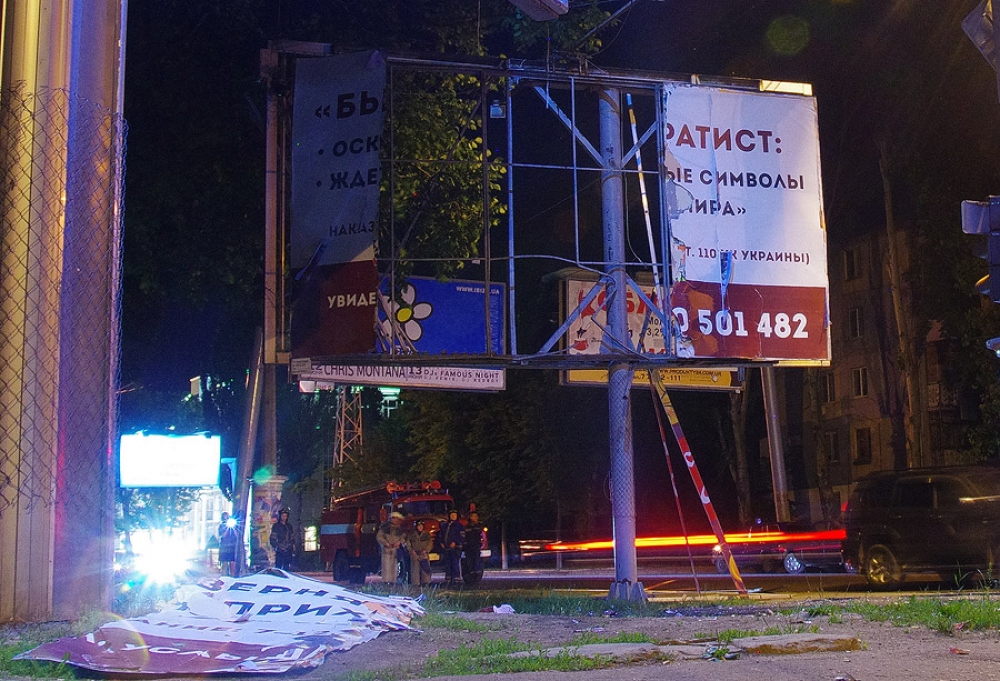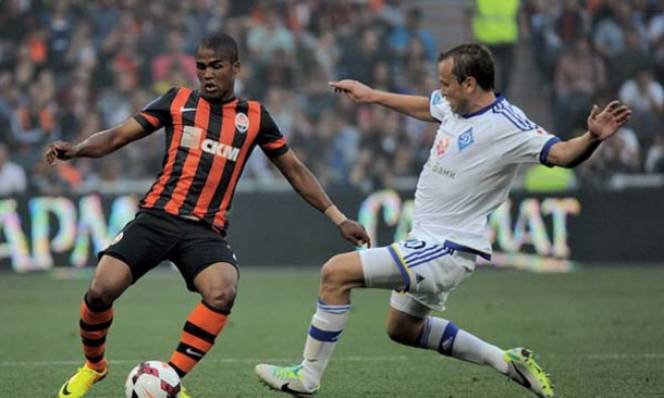By Vadim Furmanov –
On Tuesday the football season in Ukraine will get underway in Odessa with Dynamo Kyiv taking on Shakhtar Donetsk in the Ukrainian Super Cup. This is the eighth of twelve editions since the competition’s inception in 2004 in which the match will be contested between the two familiar rivals—but the first time that Dynamo will enter as holder of the domestic double. Last season was also Dynamo’s first league title in five years, which demonstrates that a power shift may have occurred in Ukrainian football.
But the bigger story that surrounds the Super Cup is not the football itself. The match is little more than a glorified friendly that serves as the grand opening of the season. No tears will be shed by the losing side. It is the location of the match rather than the selection of a victor that is most meaningful—for the first time since November, the city of Odessa will host a competitive football match.
Odessa – ‘Vanguard of Reform’
Even though it is located hundreds of miles from the front lines of the Donbass War, Odessa has regularly been the scene of bombings that target the offices of pro-Western parties and pro-military volunteer organizations. As a result of lingering security concerns, Odessa’s only professional club FC Chornomorets was forced into exile shortly after the resumption of the season in late February, and played the rest of its home matches in Kyiv or Dnipropetrovsk. At the time, the Ministry of Internal Affairs (MIA) of the Odessa Oblast recommended that no matches take place at Chornomorets Stadium “until the final stabilization of the situation in the region.”
Since then Odessa has undergone a radical political change. On May 30 Ukraine President Petro Poroshenko took the controversial, audacious step of appointing former Georgian President Mikheil Saakashvili as Governor of the Odessa region. Saakashvili is an outspoken, divisive figure who is known both for his effective reforms and questionable human rights record during his ten-year tenure as President of the ex-Soviet republic. In Ukraine, the move has been interpreted as an attempt by Poroshenko to curtail the influence of Dnipropetrovsk-based oligarch Ihor Kolomoyskyi, as Saakashvili’s predecessor was widely seen as being “a Kolomoyskyi man”.
Saakashvili has pledged to tackle corruption in the Odessa region and has unveiled an ambitious reform agenda that includes, among other wide-sweeping measures, a complete overhaul of the police system and a crackdown on business extortion. As his adviser Oleksandr Borovik put it, “we want to show the world that reforms in Ukraine are possible, and they must be quick… we have the ambition to become the vanguard of reform in Ukraine.”
Football’s return
As President of Georgia, Saakashvili was heavily involved in the country’s football affairs. After he was elected in 2004, he declared that the development of football in the country was one of his priorities, and he immediately set about cleaning up the country’s exceedingly corrupt football federation. He had the then-president of the country’s FA arrested, weakened the influence of organized crime on the game, and initiated a campaign against match-fixing.
It did not take long for Saakashvili to make an impact on football in Odessa as well. On June 16 he announced “today I spoke with [Football Federation of Ukraine] President Andriy Pavelko. We have once again allowed matches to take place at the Chornomorets Stadium.” He also declared that the Super Cup would take place in Odessa, despite earlier reports that it would be held at Kyiv’s NSK Olimpiyskiy stadium.
Saakashvili’s announcement should not be dismissed as the empty words of a populist politician who is seeking to take credit for the work of others; football’s return to Odessa is largely due to his personal influence. After the head of the Odessa regional Ministry of Internal Affairs was sacked and replaced by one of Saakashvili’s former advisers during his Presidency of Georgia, Ministry officials no longer had any objections to professional football being played in the city.
The changes he made were recognized by various football functionaries Leonid Klimov, President of Chornomorets, for example said: “I am happy that football is returning to Odessa. I spoke with Saakashvili, he really loves this sport. I am happy that with all that is going on he has still devoted attention to Chornomorets.”
Andriy Pavelko, President of the Football Federation of Ukraine, also praised the governor, saying “We had a meeting together with Mr. Saakashvili in Odessa, it is a very good thing that we have similar views on football… we understand how important it is for the number one sport in the world to return to Odessa.”
Saakshvili’s own comments reveal the significance of football’s return: “we’ll have the Super Cup between Shakhtar and Dynamo in Odessa, and we’ll have international matches. So that everyone understands: life has returned to normal, and no one can ever shake it, because without stability and peace it is impossible to achieve anything.”
Heightened Security
Of course, Saakashvili has only been on the job for little over a month, and “stability and peace” have yet to be achieved. Bombings continue to be a sporadic occurrence: in June a pair of bombs destroyed two pro-Ukraine billboards; on the night of July 2 a bomb went off outside a restaurant in the center of the city; and just three days later Odessa security forces defused an explosive device found by another patriotic billboard. While the bombs do not target people and rarely cause casualties, they are indicative of the tense atmosphere in the Black Sea port.
Because of the perceived threat, security at the Super Cup match on Tuesday will be tighter than usual. Stadium director Serhiy Sivolap told Segodnya: “Security measures will be strengthened as much as possible due to the fact that we expect a full stadium of people. Law enforcement agencies will allocate an increased number of officers who will take part in inspecting fans and controlling the entrances.” There will also be additional stewards placed around the sectors reserved for Dynamo and Shakhtar fans.
Chornomorets has reached out to fans on their official website by asking them to “give the club a chance to have the match with dignity, without provocations or disturbances, and let our team play in our home city.” The message specifically requested that fans not enter the pitch after the final whistle, as club and stadium officials would like to avoid the embarrassing display that followed Dynamo’s victory over Shakhtar in the Cup Final when hordes of celebrating Dynamo fans ran onto the pitch, tore down the goalposts and caused severe damage to the grass.
The heightened security measures are obviously intended to ensure the fans’ safety, but there is an additional reason for the measures. According to Pavelko there will be an observer from UEFA present at the match who will assess the stadium’s readiness to hold international fixtures next year. The possible return of international football to Odessa would be a victory for Saakashvili, as it would be a definite sign that peace and stability were returning to the city. An incident-free Super Cup is therefore crucial for the governor.
A sense of normalcy
Saakashvili’s efforts to bring the Super Cup to Odessa and to bring Chornomorets back to their home ground may not seem all that significant when compared to the corruption and instability that is plaguing the city and the region. But the return of football to a city whose team was forced into exile is a symbol of a new government and a new beginning. As Saakashvili himself said when he disclosd the news of Chornomorets’ return, “There needs to be a sense of normalcy.” Now that Odessa has its football team back, perhaps this sense of normalcy that has been missing for so long will return as well.
Vadim Furmanov is an undergraduate student at the University of Chicago. He is a supporter of Dynamo Kyiv and the Chicago Fire. Follow him @vfurmanov.























COMMENTS